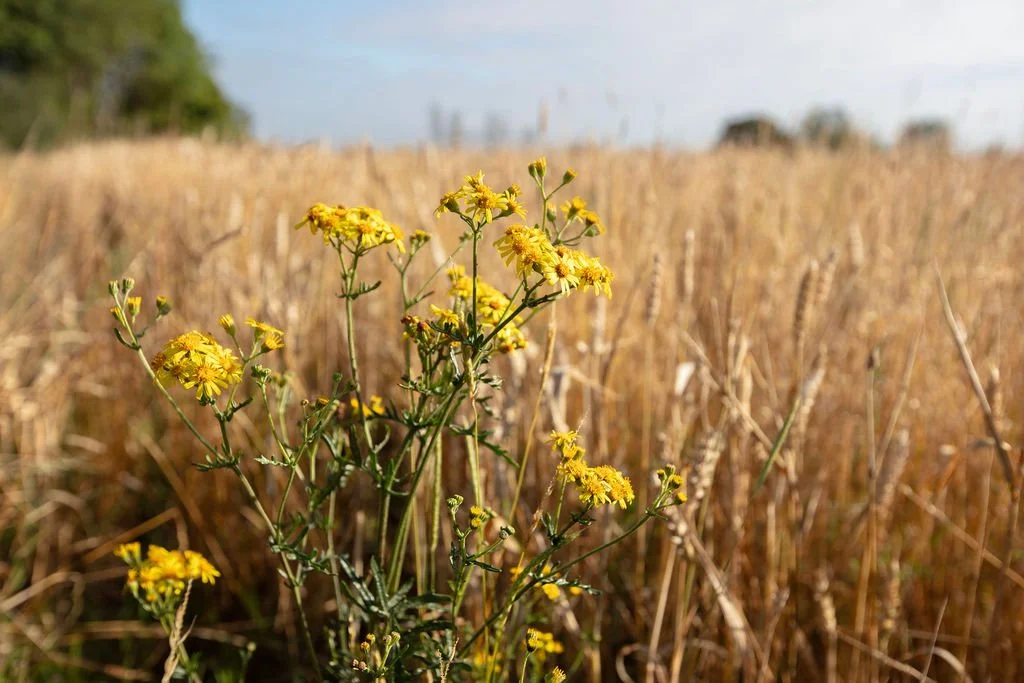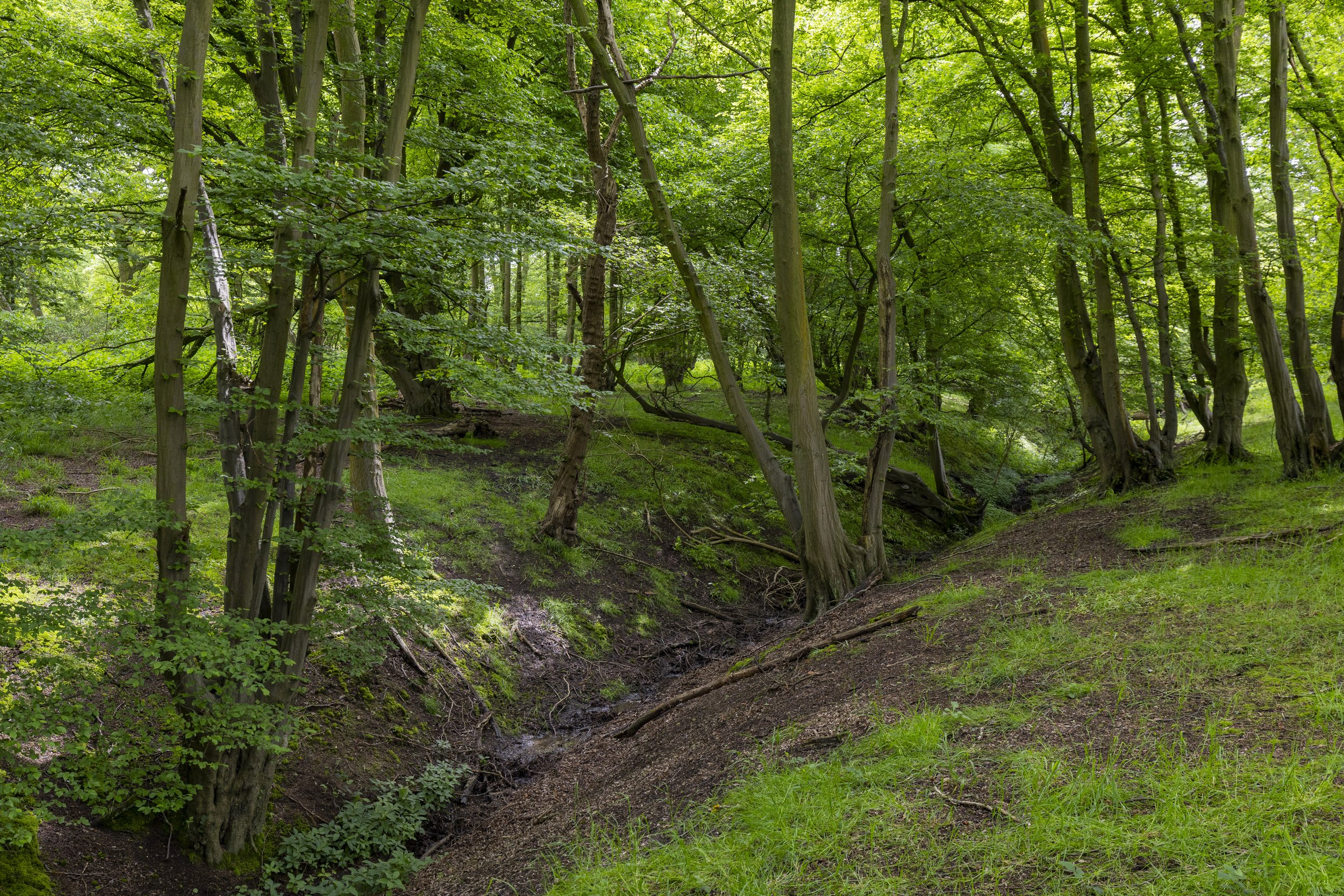Boothby Wildland
Nattergal purchased its first site, Boothby Wildland, in December 2021. It’s a 617 hectare former arable farm in Lincolnshire, with variable grade 3 soil types.
Following lessons learnt from Knepp Wildland in Sussex, Boothby has been gradually retreating from arable farming and preparing to let nature take the lead.
The story so far...
-

Context
Over the last three years, we have been staggering Boothby's retreat from arable farming, gradually removing fields from intensive cereal production. Our last harvest was in September 2024.
The farm was part of a well managed agri-environment scheme in the previous decade – meaning that around the edges are small species-rich hotspots of nature waiting to burst out and colonise the depleted monoculture arable fields. Together with the variable soil types, the degraded West Glen river, and adjacent ancient woodland, this makes Boothby a wonderful opportunity for nature recovery.
-

Future Vision
Once natural vegetation has a chance to re-establish (primarily through natural colonisation) free-roaming herbivores will be introduced to kickstart dynamic natural processes and drive ecosystem recovery. Natural hydrology on the site will also be restored to further stimulate a dynamic, functioning ecosystem.
Our Future Vision artwork shows how Boothby Wildland may change and develop over the coming years. Creating a more complex, interesting and beneficial landscape for people and wildlife is at the heart of what we are working towards
ELMS Landscape Recovery Phase One Pilot
The Environmental Land Management Scheme (ELMS) is a UK government-led approach to encouraging landowners to make changes to land for environmental benefit.
As one of the 22 Landscape Recovery phase one pilots, Boothby has been demonstrating how to build an innovative business model for rewilding, sell ecosystem services, help establish a rewilding community, and encourage nature to thrive.
It has been great working in partnership with Natural England, DEFRA and the Environment Agency to complete the pilot.
Rewilding in Action
Community Engagement & Volunteering
In September 2023, we held an interactive community workshop at Boothby Wildland, to better understand local knowledge of, and aspirations for, the land. We were delighted with the enthusiasm and support. We offer our local community a number of opportunities to be involved in our rewilding efforts, from monthly walk & talk events and project consultations, to an annual family day and nature workshops. Volunteering is particularly valuable, boosting the capabilities of our site team. Huge thanks to everyone who has helped with project such as green hay spreading, fence building, apple tree grafting, constructing hibernacula, setting up camera traps, and removing tree guards.
Baselining
During our retreat from arable farming, we have completed over two years of baseline monitoring, enabling useful comparisons between areas still under farming with those left to rewild. We’ve collaborated with experts from across the UK to collect data on everything from the fungi in the soil, to birds, bats, butterflies and bumblebees. Lincolnshire Wildlife Trust have been a critical partner, helping us with our BNG plans, creating ponds and supplying green hay, to name but a few. We now have a robust understanding of how the 2km of the West Glen river that runs through the site flows, and the quality of the water. We’ve also measured the amount of carbon stored in our soil, trees and shrubs.
Early Signs of Nature Recovery
Across the land, we have begun to see a flush of vegetation as the first plants begin to naturally colonise the ex-arable fields. Oak saplings have been popping up in the middle of fields and shrubs like blackthorn, hawthorn and dog rose have taken root, ready to provide protection for young trees from our local deer.
We’ve employed a number of simple kick-starters to help give these natural processes an boost, for example creating piles of brash – dead wood, branches and leaves – in the middle of the fields. This creates little habitat islands in the vast fields, encouraging birds to use these to rest, setting seeds which will then be afforded some protection as they grow. We’ve also spread ‘green hay’ – the cuttings of species rich wildflower margins – to provide a seed source on the degraded soils, that wouldn’t otherwise find its way very quickly to the Wildland.
In partnership with NatureSpace, as part of their Network Rail Organisational License, we’ve also been restoring and adding ponds for Great Crested Newts.
River Restoration
Historic human engineering for agricultural purposes has destroyed the natural interaction of water with the flood plain at Boothby. Further to a great deal of research, analysis and public consultation, a restoration plan for the West Glen river is now underway, with a view to alleviating flooding downstream, improving water quality, and creating an important mosaic of wildlife habitats.
Our plan is to ‘slow the flow’ of the river by widening the channel, creating pools and meanders, and lowering the floodplain. This will allow it to act like a sponge – storing water in times of both drought and high rainfall, and creating a filter to improve water quality at the same time.
Work begins in earnest from Autumn 2024. Alongside some human labour to achieve the desired re-wiggling, we intend to release beavers into a large enclosure. Beavers are brilliant at restoring natural ecosystem processes, and we are incredibly excited to have obtained a license for their re-introduction at Boothby Wildland later in 2024. Be sure to sign up to our newsletter, and/or follow us on social media, to stay updated on our progress.
The Boothby WildMap
Get to know the wildlife and landscape of Boothby that bit better with our interactive digital map. From wildlife videos and plant lists, to audio recordings and 3D models, this is a fascinating and unique way to enjoy our work from the comfort of your computer.

Support For Boothby Wildland
Jo Elston-Moscrop, Local Residend
“The community presentation was such a wonderful evening. I can't tell you how excited my husband and I are about the rewilding programme. It is something extremely close to our hearts - we are very excited to see it come to life and feel very blessed to have it on our doorstep.”
Tammy Smalley, Head of Conservation at the Lincolnshire Wildlife Trust
“As we seek to recover nature across Greater Lincolnshire, delivering multiple benefits for people and wildlife, it is truly exciting to have new partners to work with us. Nattergal’s first venture nationally, is to invest in our fabulous county, which will help illustrate to other land managers options to diversify their income base.”
Professor Alastair Driver, Conservationist and Rewilding Specialist
“There is an urgent need to change the way we value and manage the natural environment and Nattergal brings together a unique team of experts to help pioneer that change. By focusing on nature recovery at scale, which delivers economic resilience and supports local communities, Nattergal has the potential to kickstart a new era of land management and make it one of the most important enterprises in the UK today.”
Rewilding Site Locations
Boothby Wildland
Boothby Lodge Farm, Boothby Pagnell, Lincolnshire NG33 4DE
Harold’s Park Wildland
Harold's Park Farm, Nazeing, Waltham Abbey EN9 2SF
High Fen Wildland
High Fen Farm, Thornham Road, Methwold Hythe, Norfolk IP26 4PJ















